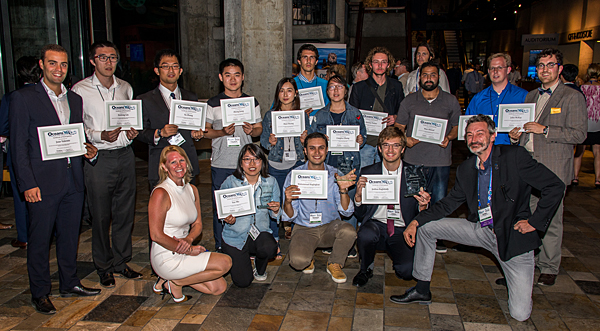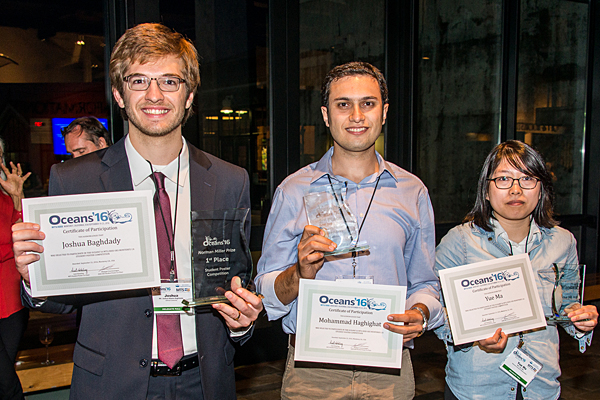

About
Beginning in 1989, Colonel Norman Miller created and implemented the first Student Poster Competition (SPC) during the OCEANS conference in Seattle, Washington. The competition continued ever since on an annual basis during the OCEANS conference, and then on a bi-annual basis as the OCEANS conference grew to an annual North American conference and an annual Europe/Asia conference.
Students from colleges and universities from around the world are eligible to compete. As the abstract window for a conference opens, students can chose to submit an abstract to the SPC. All abstracts are reviewed by a panel of volunteers to determine if the abstract is of high enough quality to be admitted to the pool of accepted abstracts for the conference. Those abstracts connected to the SPC are reviewed a second time by a specific set of reviewers dedicated to the SPC. Of those hundred or so abstracts received each cycle, a select few are invited to participate in the SPC. Those abstracts not selected for the SPC are invited to submit a paper to one of the Technical Session in the conference tracks.
Acceptance to the SPC is an honor for the students. Their work is highlighted during the conference, they compete for prizes, and a very important perk for the SPC participants, and their travel, lodging and conference registration are covered by the conference. In addition the technical paper submitted by the first place winner is published in The Beacon, the IEEE OES newsletter.
The Office of Naval Research (ONR) and the Office of Naval Research Global (ONRG) have supported the Student Poster Competition since inception. The generous support of ONR and ONRG has enabled hundreds of students from around the globe to attend OCEANS conferences and share their research with the community. We are deeply grateful for their continued backing of the program.
The Student Poster Competition Judges and reviewers dedicate countless hours to the program. Reviewers sort through hundreds of abstracts to create a short list of a select few students and offer invitations to compete. Once at the conference, the Judges volunteer their time to visit all posters and speak with the students to understand the research presented. The Judges meet and discuss all posters and determine the winners, which can be a very difficult decision. These actions occupy several hours of conference time and we are appreciative of their sense of volunteerism.




